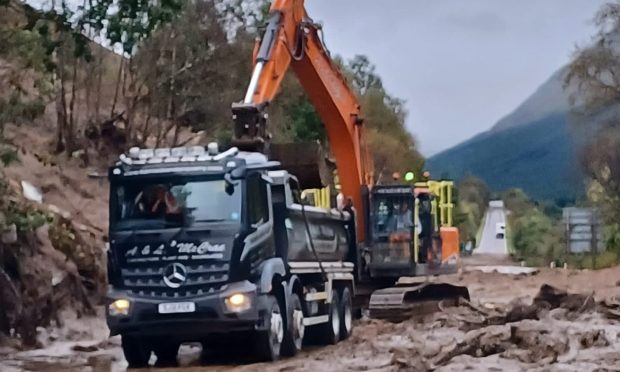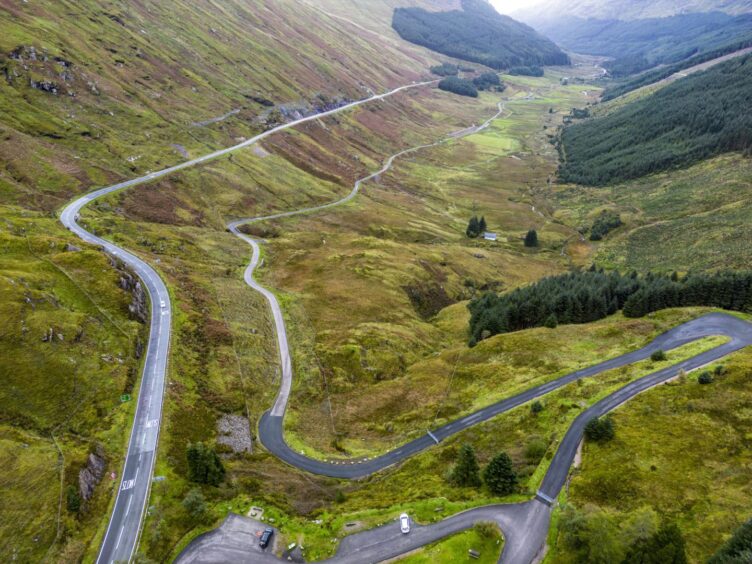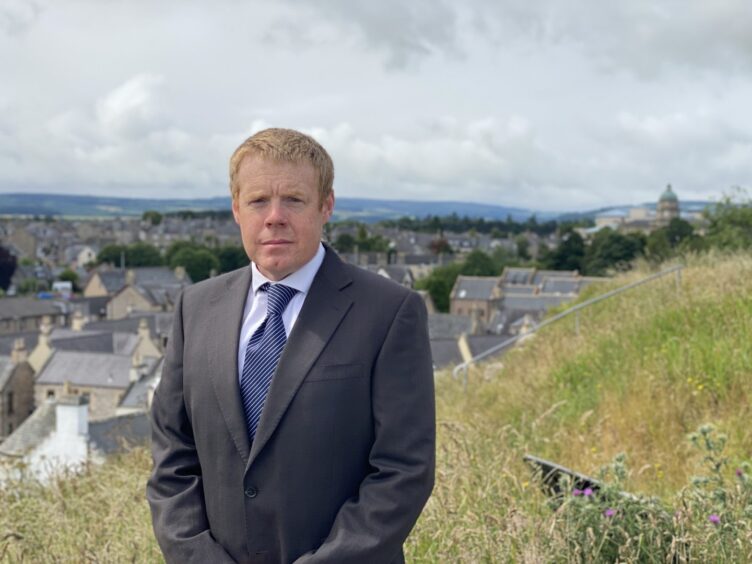Millions of pounds have been spent bringing in consultants to find a solution to landslips at the A83 Rest and Be Thankful.
The route has not been open to two-way traffic since August 2020 for more than a few months, with regular diversions made onto the 270-year-old single-track Old Military Road when it rains.
The A83 Inveraray to Loch Lomond road at the Rest and Be Thankful section has been plagued by serious landslips in recent years.
The Scottish Government says it is “steadfast in its commitment” to delivering a long-term solution, announcing a £420million permanent fix last year.
However, local residents and motorists continue to feel frustrated that they still don’t have a road that can be driven on when it rains.
It has now been revealed that an “eye-watering” £16million has been spent by the Scottish Government in the past four years on consultants on the project.
In figures released to Tim Eagles, the area’s Conservative MSP – who shared these with The P&J – the government is keen to point out the figures are inclusive of VAT and cover costs associated with design and assessment work.
John Gurr, who is the chairperson of the Rest and Be Thankful campaign group, said what has been spent over the last 10 years is huge.
He said: “There has been £30 million spent in the past 10 years on studies, catch pits and mitigation works to try to keep the A83 open at the Rest and Be Thankful.
“Despite all this effort the road has not been open to two-way traffic since August 2020 for more than a few months and is still diverted onto the 270-year-old, single-track Old Military Road when it rains.”
He added that every time the Old Military Road is used, the landlord gets a “rent” for its use, adding even more money to the total bill.
“If the project actually goes ahead the main access into Argyll will be limited to the Old Military Road, that’s four years on a single track road under convoy,” Mr Gurr added.
“Surely there is a cheaper, faster, more reliable way of building two miles of road that stays open when it rains.”
What solutions have consultants come up with?
From 2021 until August 16 this year the Scottish government has spent £16,082,310.60 on consultant fees, according to figures seen by The Press and Journal.
Transport Scotland says it has been working on short-term, medium-term and long-term solutions to keep the vital section of the road operational.
Its preferred long-term solution is a near mile-long long “debris flow shelter” spanning the road that would keep falling rocks and other material off the carriageway.
Consultants have also suggested that improvements to the existing Old Military Road through the Glen Croe corridor are made to make it a more resilient diversion route until the long-term solution is in place.
Consultant fees have been spent on:
- Engineering design
- Environmental assessment (including environmental survey work)
- Traffic and economic assessment
- Stakeholder engagement and supervision of ground investigation works and the medium-term solution works to the Old Military Road
Scottish Conservative MSP for the Highlands and Islands, Mr Eagle, said: “These are eye-watering sums of money being spent on consultants before a spade has even hit the ground.
“Motorists have suffered misery on this key route for far too long but there still appears to be no end in sight despite all of this money being spent.”
Consultant bill “is not unreasonable”
A Transport Scotland spokesperson said the design work was being “progressed at pace” with draft orders for the project due to be in place by the end of this year.
A spokesperson said: “As with all our infrastructure projects, construction of the long-term solution can only commence if it is approved under the relevant statutory authorisation process and thereafter a timetable for construction can be determined.
“At the same time, we are progressing our plans to increase the resilience of the temporary diversion route along the Old Military Road.
“Ground investigations to inform the next phases of the medium-term solution are already underway and we will then look to start further construction works later this year, subject to obtaining the necessary consents.”
In direct response to the consultant bill, the spokesman said that the spend on the scheme “reflects the extensive appraisal and assessment undertaken” to inform detailed design work.
They said the expenditure “is not unreasonable” given the complexity and challenges of the scheme and the extent of the work.



Conversation